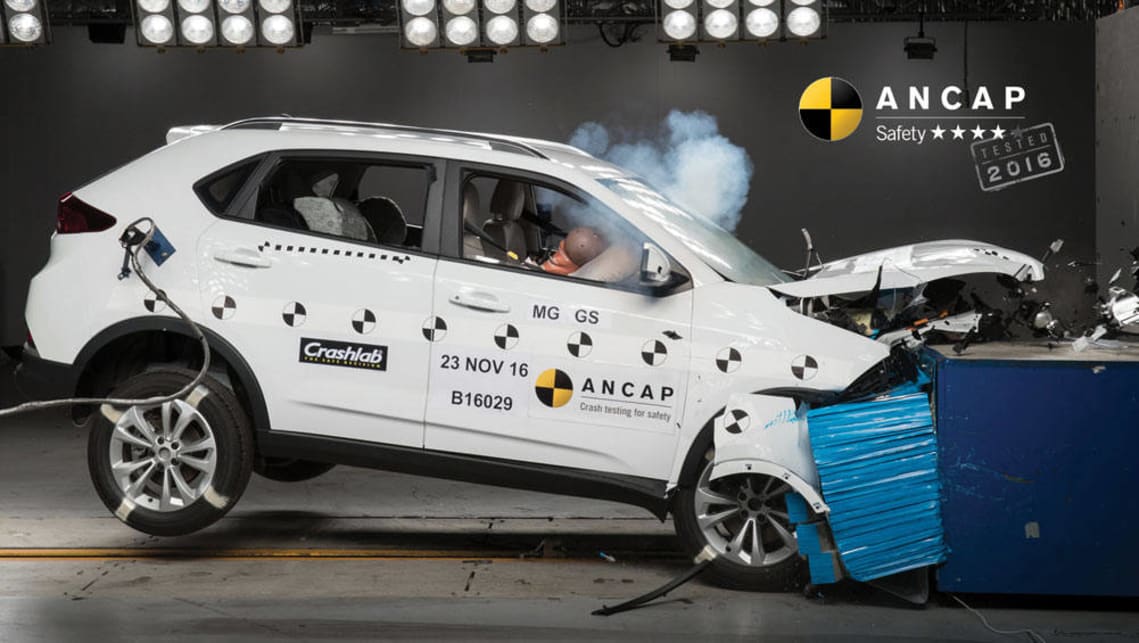
MG's GS mid-size SUV has been given a four-star safety rating from the Australasian New Car Assessment Program (ANCAP) ahead of the vehicle's launch into the Australian automotive market in March.
Despite its less-than-perfect score, the Chinese-built, British-engineered GS fared better than many pundits expected, retaining its structural integrity in a series of frontal and side crash tests comparatively well for a Chinese car.
ANCAP CEO James Goodwin said that despite the car's respectable structural strength, it was let down by a lack of safety technologies such as audible rear seatbelt reminders.
"The GS is a good car structurally, offering sound levels of occupant protection, however its safety specification is lacking," he said.
"Consumers have come to expect a higher standard of safety features and unfortunately it falls short of the top safety rating."
Images and analysis of the GS mid-crash indicate the body of the car dealt with the impact well, avoiding crumpling in the A-pillar, doors and sills, while the windscreen remained in place.
It is a vast improvement over early vehicles sourced from the world's biggest car market, many of which had a propensity to crumple under the same circumstances. However, recent Chinese examples have started to turn the tide, such as the Haval H9 large SUV which also nabbed four stars.
MG Australia said that its goal is to have all of its future models meeting the requirements for a five-star NCAP rating, while Mr Goodwin said ANCAP was working with MG to see if a specification upgrade could be made to boost the GS's rating to five stars.
However, given that the GS is well into its life cycle in China and other markets, retro-engineering the car for small volumes in Australia would not be easy.
The GS was originally slated for a third quarter 2016 Australian launch.
In the frontal offset crash test, the GS scored 13.47 out of 16, with front row occupants either receiving ‘good' or acceptable' crash ratings on all body parts bar the driver's left leg, which was rated ‘marginal' possibly due to the absence of a knee-protecting airbag on that side.
It scored a perfect 16 out of 16 in the side impact test, and the whiplash test was rated the best-possible ‘good.' The pedestrian impact test resulted in a score of 25.7 out of 36, scoring well on adult leg impact but achieving mixed results when it came to child and adult head impact.
The GS comes with side head-protecting airbags for the front and back row, but chest protecting side airbags are a front-only affair.
Missing safety technologies that dragged the GS's score down include adaptive cruise control, blind spot warning, auto emergency braking, rear-seat pre-tensioners, lane keeping assist and a knee airbag for the driver.
The GS was originally slated for a third quarter 2016 Australian launch, however it was delayed until March to allow MG to prepare it for this market.
MG has two other recently-released offerings on the Australian market – the MG6 sedan, which was awarded a five-star ANCAP rating, and the MG3 hatch which is yet to be tested, but could struggle to achieve the score of its stablemates due to its relative age.
A compact SUV, called the ZS, is slated for an arrival in Australian showrooms later this year.
No comments:
Post a Comment